Guide to Leadership Coaching Opportunities in 2025
Are you ready for the next wave of leadership coaching opportunities? In 2025, organizations and professionals are facing an unprecedented demand for effective leaders who can navigate rapid change.
This guide uncovers the most important trends shaping leadership coaching opportunities. You’ll discover how new coaching models, cutting-edge technology, and a focus on measurable outcomes are transforming leadership development.
Explore actionable insights, compare program types, and get a roadmap for accessing the best leadership coaching opportunities in 2025. If you want to stay ahead and drive real impact, this is your starting point.
The Evolving Landscape of Leadership Coaching in 2025
The world of leadership coaching opportunities is undergoing a major transformation as we head into 2025. Organizations and professionals alike are seeking new ways to develop leaders who can thrive in rapidly changing environments. From digital platforms to a sharper focus on diversity and measurable impact, the landscape is more dynamic and promising than ever.
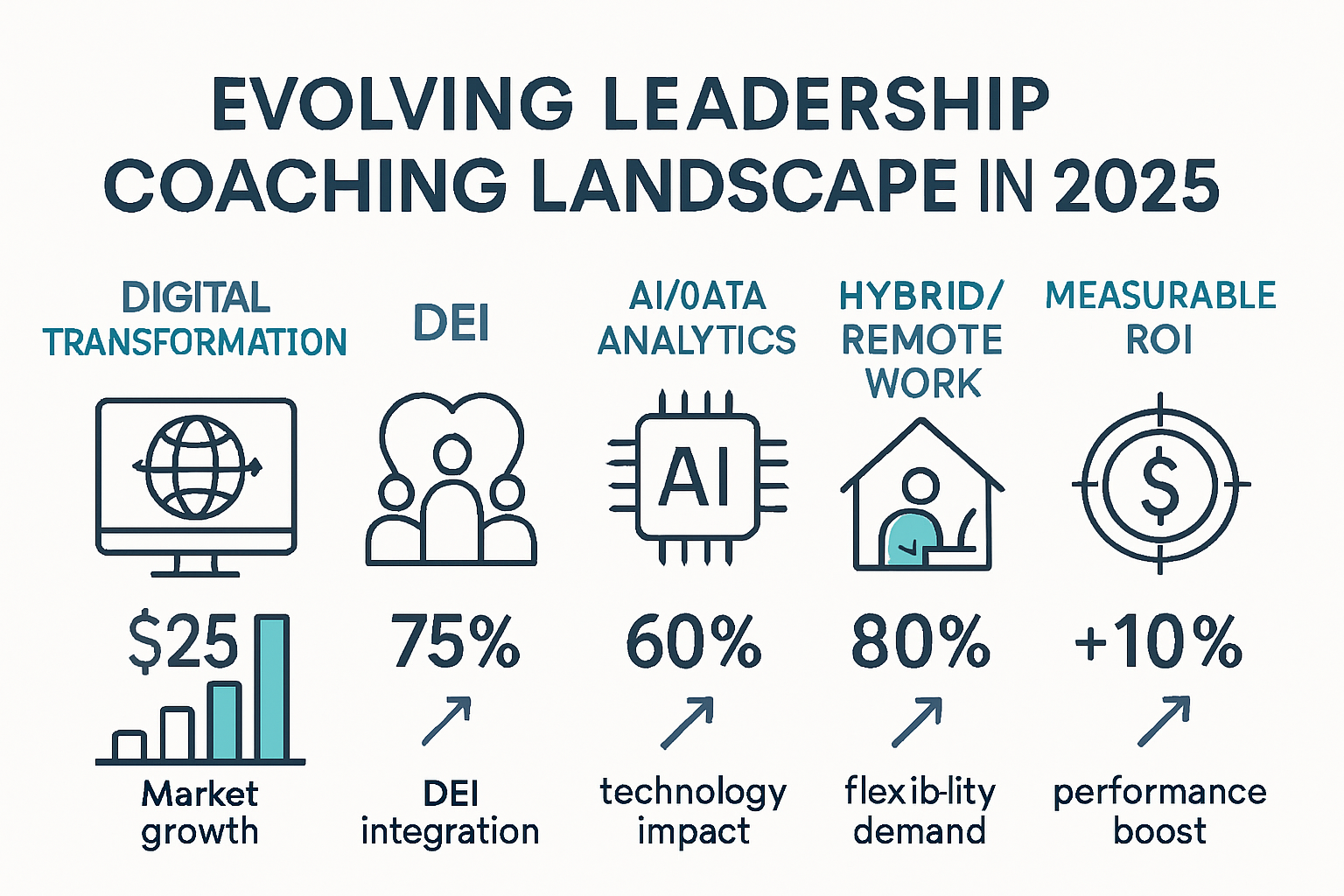
Key Trends Shaping Leadership Coaching
In 2025, several key trends are reshaping leadership coaching opportunities across industries. Digital transformation is accelerating, making virtual coaching platforms the norm rather than the exception. There's a heightened emphasis on DEI, ensuring coaching curricula foster inclusive and equitable workplaces. AI and data-driven assessment tools are being integrated to personalize development and measure progress. Leaders are now coached specifically to manage hybrid and remote teams, addressing unique challenges in these settings. Finally, organizations are demanding more measurable outcomes and ROI from coaching investments to justify continued growth.
New Demands and Skills for Modern Leaders
Today's leadership coaching opportunities demand a new set of skills for modern leaders. Emotional intelligence and resilience are at the forefront, helping leaders navigate uncertainty and stress. Ethical decision-making and transparency are now non-negotiable expectations. With teams becoming increasingly global, cross-cultural and remote management skills are essential. Adaptive leadership is necessary in industries where change is constant. Additionally, coaching now prioritizes creativity and innovation, ensuring leaders can drive growth in a competitive landscape.
Market Growth and Opportunities
The market for leadership coaching opportunities is booming in 2025, with global projections showing significant increases in value. Sectors like technology, healthcare, finance, and government are seeing the highest demand for coaching services. Small and medium-sized enterprises (SMEs) and startups are also embracing coaching to build strong leadership pipelines. Corporate investment in leadership development continues to rise, signaling a long-term commitment to nurturing talent. This expansion creates more varied and accessible coaching options for professionals at all levels.
Impact of Technology and AI
Technology is revolutionizing leadership coaching opportunities through AI-powered coach matching, performance analytics, and personalized learning paths. Virtual reality and simulation-based training offer immersive experiences for developing real-world leadership skills. However, these advancements bring new data privacy and ethical considerations that organizations must address. Many programs now blend digital tools with human expertise, balancing efficiency with the personal touch needed for effective coaching. For a deeper dive into how coaching is evolving, check out this Leadership Coaching Overview.
Shifting Expectations from Organizations and Individuals
Organizations and individuals are raising the bar for leadership coaching opportunities in 2025. There is growing demand for personalized, flexible coaching solutions tailored to specific needs. Cultural alignment and values-based coaching have become priorities, ensuring programs resonate with diverse teams. Employees are increasingly driving requests for leadership development, making it an essential part of talent retention and engagement strategies. At the same time, organizations are holding themselves accountable for leadership growth, tracking progress and outcomes to demonstrate real impact.
Types of Leadership Coaching Opportunities in 2025
The world of leadership coaching opportunities in 2025 is more dynamic and varied than ever before. Whether you’re a seasoned executive or an emerging leader, there’s a coaching style and format designed to match your unique goals and organizational needs.
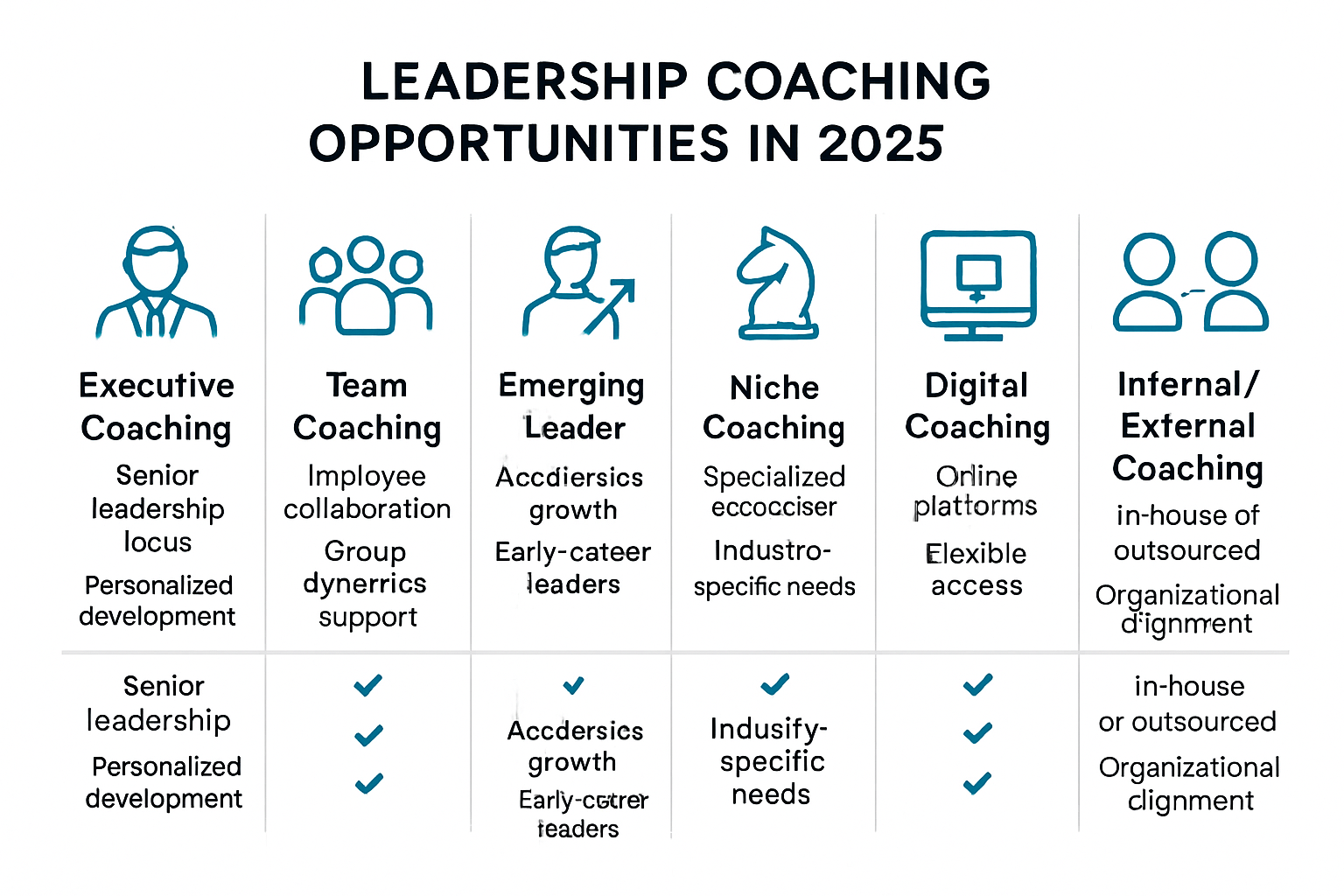
Executive Coaching Programs
Executive coaching programs remain at the forefront of leadership coaching opportunities. These programs are tailored for C-suite executives and senior leaders who seek transformative growth. Sessions are highly customized, aligning with organizational strategy and individual leadership styles.
Confidentiality is paramount in executive coaching, fostering a space for honest self-reflection and bold goal-setting. In 2025, trends show a rise in data-driven and AI-supported coaching, offering deeper insights and measurable impact. For a closer look at how these programs are evolving, Executive Coaching Insights provides valuable details on the latest approaches and industry shifts.
Fortune 500 companies increasingly invest in executive coaching, recognizing its direct link to organizational performance and innovation. This type of coaching is a cornerstone for those seeking high-impact leadership transformation.
Group and Team Coaching
Group and team coaching is rapidly growing within the spectrum of leadership coaching opportunities. In 2025, organizations are leveraging this format to build collaborative leadership skills and drive collective success.
These programs focus on enhancing trust, communication, and shared purpose among teams. Facilitators guide groups through real-world challenges, helping members align on goals and improve decision-making. Project-based and cross-functional teams particularly benefit from this approach, as it supports agility and fosters innovation.
Recent adoption rates reveal that more companies are choosing team coaching to address hybrid work dynamics and cross-cultural collaboration. The ability to catalyze group synergy makes this a valuable option for organizations aiming to strengthen leadership at every level.
Emerging Leaders and High-Potential Talent Programs
For those at the start or midpoint of their careers, leadership coaching opportunities abound through emerging leader and high-potential talent programs. These initiatives are designed to nurture tomorrow’s leaders, focusing on early identification and accelerated development.
Participants engage in structured coaching that supports succession planning, talent pipeline growth, and inclusive leadership. Many organizations partner with universities or create in-house tracks to develop diverse and dynamic future leaders.
Coaching within these programs helps individuals build confidence, critical thinking, and adaptability. As a result, companies secure a robust bench of talent ready to take on leadership roles in a rapidly changing business environment.
Niche and Specialized Coaching
Niche and specialized coaching is expanding the definition of leadership coaching opportunities in 2025. These programs address unique challenges within specific industries or demographic groups.
Healthcare, tech, and education sectors often require industry-specific expertise. Meanwhile, coaching for women, minorities, and underrepresented groups is gaining traction, promoting equity and representation in leadership.
Entrepreneurs and small business owners also benefit from tailored coaching, including sustainability and ESG-focused leadership. This specialized approach ensures that coaching aligns with both sector demands and personal aspirations.
Digital and On-Demand Coaching Platforms
Digital and on-demand platforms are revolutionizing leadership coaching opportunities by making them more accessible and scalable. In 2025, 24/7 access to virtual coaching, AI-driven personalization, and robust online resources empower leaders to learn on their terms.
These platforms allow for flexible scheduling, cost-effective delivery, and global reach. Organizations can compare leading providers based on features like real-time feedback, interactive content, and measurable outcomes.
The scalability and convenience of digital coaching make it a top choice for companies of all sizes. Leaders benefit from immediate support, fostering continuous growth and engagement.
Internal vs. External Coaching Opportunities
Deciding between internal and external coaching is a critical consideration for organizations exploring leadership coaching opportunities. Internal programs leverage in-house coaches familiar with company culture, enabling tailored solutions and ongoing support.
External providers, on the other hand, bring specialized expertise, confidentiality, and fresh perspectives. Many companies in 2025 adopt hybrid approaches, blending internal knowledge with external innovation.
Here’s a quick comparison:
| Aspect | Internal Coaching | External Coaching |
|---|---|---|
| Customization | High (culture fit) | High (specialization) |
| Confidentiality | Moderate | High |
| Scalability | Limited | Broad |
Choosing the right mix ensures coaching aligns with organizational goals while maximizing impact and flexibility.
How to Identify and Evaluate Leadership Coaching Opportunities
Unlocking the full potential of leadership coaching opportunities in 2025 starts with a clear and systematic evaluation process. The right approach ensures your investment leads to lasting development, measurable results, and cultural alignment. Let’s break down each vital step to help you make confident, informed choices.
Assessing Organizational and Personal Needs
Start by pinpointing where leadership coaching opportunities can create the most impact. Conduct a leadership gap analysis to identify current strengths and areas for growth, both at the individual and organizational level.
Gather input from stakeholders, HR, and team members to align coaching objectives with business goals. Use 360-degree feedback tools and assessments to clarify which competencies—like communication, adaptability, or strategic thinking—need attention. By defining clear goals, you ensure leadership coaching opportunities are tailored to your unique context, setting a strong foundation for meaningful growth.
Evaluating Coaching Providers and Programs
Choosing the right provider from the many leadership coaching opportunities requires due diligence. Look for programs and coaches accredited by recognized bodies like ICF or EMCC. Review their experience, specialization, and client results.
Assess program structure: Is it a short-term intensive or a longer, relationship-based journey? Are there follow-ups and support after completion? Always check testimonials and case studies for evidence of measurable outcomes. For a deep dive, see this guide on Choosing a Leadership Coach.
Key Questions to Ask Before Enrolling
Before committing to any leadership coaching opportunities, ask a few essential questions. What specific outcomes will the program deliver, and how are they measured?
- How is progress tracked and reported?
- Is the coaching approach rooted in evidence and best practices?
- What kind of post-program support is available for ongoing development?
These answers provide clarity and set realistic expectations, helping you select leadership coaching opportunities that truly fit your needs.
Financial Considerations and ROI
Understanding the financial side of leadership coaching opportunities is crucial. Costs may be structured per session, as all-inclusive packages, or on a retainer basis.
To calculate ROI, track metrics like employee retention, engagement, and performance improvement. Explore funding options such as employer sponsorships, professional grants, or scholarships. In 2025, organizations increasingly expect hard data on returns—review recent studies and use ROI calculators to inform your investment in leadership coaching opportunities.
| Cost Structure | Pros | Cons |
|---|---|---|
| Per Session | Flexibility | May cost more overall |
| Package | Predictable pricing | Less flexibility |
| Retainer | Ongoing support | Higher upfront cost |
Ensuring Cultural and Ethical Alignment
Cultural fit is non-negotiable for effective leadership coaching opportunities. Ensure your chosen coach or program aligns with your organization’s values and DEI goals.
Select providers who prioritize confidentiality, trust, and psychological safety. Ask how they address ethical dilemmas and protect sensitive data. DEI considerations are vital—choose coaches with experience supporting diverse leaders. This alignment ensures leadership coaching opportunities foster a positive, inclusive environment and sustainable growth.
Noomii Corporate Leadership Program: Precision Coaching for 2025
Noomii’s Corporate Leadership Program stands out among leadership coaching opportunities in 2025. It uses evidence-based diagnostics and smart coach matching to target toxic leadership and compliance gaps.
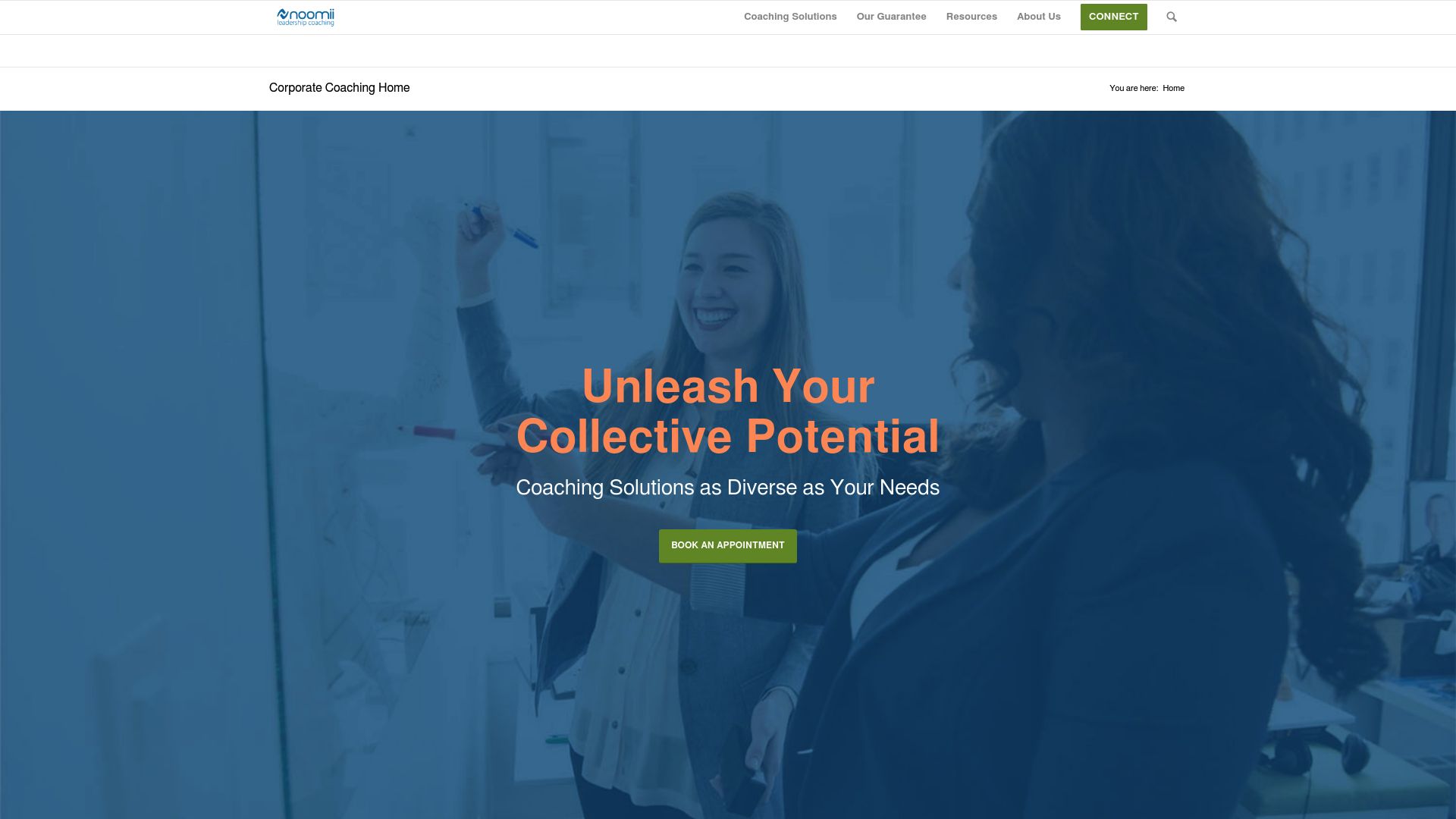
The platform offers scalable solutions for organizations of all sizes, seamlessly integrating with HR and L&D systems. Unique features include a global coach network, compliance alignment, and robust ROI tracking. Whether you’re a government agency or Fortune 500 company, Noomii delivers measurable impact and a culture of continuous leadership growth.
Steps to Accessing Leadership Coaching Opportunities in 2025
Embarking on the journey to maximize leadership coaching opportunities in 2025 requires a clear, actionable roadmap. With the landscape rapidly evolving, both individuals and organizations must be strategic to ensure the best fit and outcomes. Let’s break down the five essential steps to help you access and thrive in top leadership coaching opportunities.
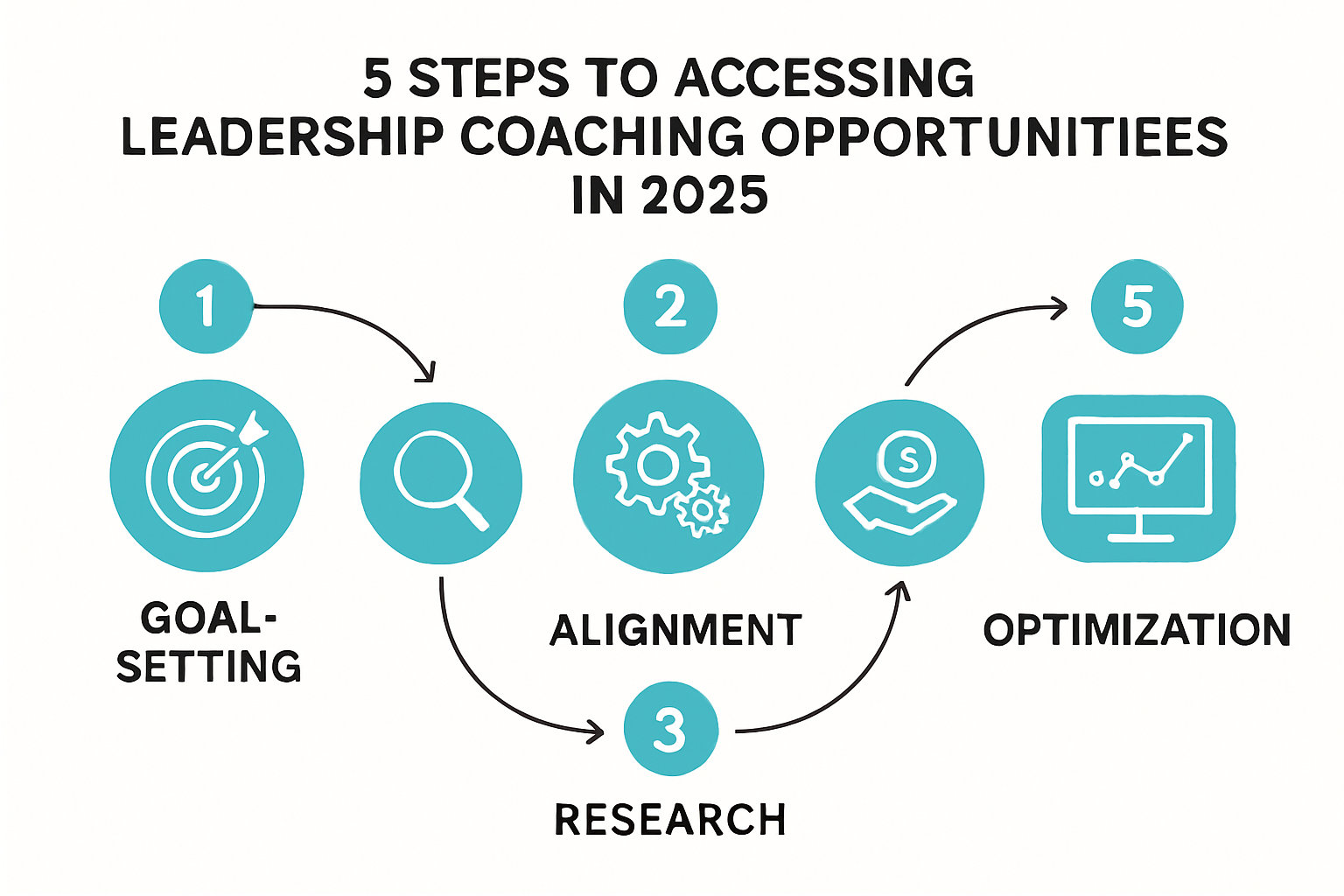
Step 1: Define Leadership Development Goals
Start by clarifying your objectives for seeking leadership coaching opportunities. Are you aiming to advance your career, develop a specific skill set, or drive cultural change within your organization? Pinpointing desired competencies—such as strategic thinking, emotional intelligence, or team management—sets the foundation for success.
Engage stakeholders early. For organizations, involve HR, L&D teams, and key decision-makers to align coaching with business priorities. Individuals should reflect on personal aspirations and gather input from mentors or supervisors. Defining these goals ensures your leadership coaching opportunities are targeted and measurable.
Step 2: Research and Shortlist Coaching Providers
With your goals defined, begin researching potential leadership coaching opportunities. Use trusted directories, professional networks, and referrals to build a list of reputable providers. Compare offerings by looking at program formats, specializations, and delivery methods—virtual, in-person, or hybrid.
Read reviews and success stories to gauge real-world impact. Investigate market trends to identify innovative providers that align with your needs. For example, recent leadership coaching market growth projections highlight a surge in digital solutions, expanding your options for leadership coaching opportunities.
Step 3: Assess Fit and Alignment
To maximize leadership coaching opportunities, assess the cultural and strategic alignment of each provider. Interview potential coaches and ask about their methodologies, experience, and values. Look for a coaching style that matches your learning preferences and organizational culture.
Pilot sessions or initial assessments can help you experience the approach firsthand. Evaluate communication style, flexibility, and willingness to customize the program. The right fit ensures your leadership coaching opportunities are not only effective but also sustainable for long-term growth.
Step 4: Secure Funding and Organizational Buy-In
Securing resources and support is crucial for accessing leadership coaching opportunities. Develop a compelling business case that outlines expected benefits, such as improved retention, engagement, and performance metrics. Present this to decision-makers and show how coaching aligns with broader talent development strategies.
Explore funding options, including employer sponsorship, professional development grants, or shared-cost models. Clear communication about ROI and expected outcomes will help gain buy-in and pave the way for successful implementation of leadership coaching opportunities.
Step 5: Launch, Monitor, and Optimize Coaching Engagement
Once your leadership coaching opportunities are underway, establish clear milestones and KPIs to track progress. Set up regular feedback loops with coaches, participants, and stakeholders to ensure continuous improvement.
Monitor outcomes such as skill development, team dynamics, and business results. Be ready to adjust the approach based on feedback and evolving needs. Ongoing optimization ensures your investment in leadership coaching opportunities delivers lasting value for individuals and organizations alike.
The Future of Leadership Coaching: Predictions and Opportunities Beyond 2025
The landscape of leadership coaching opportunities is set to transform dramatically beyond 2025. As technology, globalization, and new workforce expectations reshape how leaders grow, both individuals and organizations must adapt to stay competitive. Let’s explore what the future holds for leadership coaching opportunities and how you can leverage these changes for lasting impact.
The Rise of AI and Data-Driven Coaching
AI is revolutionizing leadership coaching opportunities, making programs more personalized and evidence-based. Predictive analytics and smart matching algorithms help identify unique development needs, while AI-powered feedback tools track progress in real time. Virtual coaches and platforms deliver tailored learning pathways, balancing data insights with the critical human touch.
Ethical considerations, like privacy and transparency, are vital as AI becomes more prevalent. For a deeper dive into how AI is shaping executive coaching, see this overview on AI integration in executive coaching. As these innovations mature, expect AI-driven coaching to set new standards for measurable results and scalable leadership coaching opportunities.
Globalization and Cross-Cultural Leadership
Leadership coaching opportunities are expanding across continents, serving global teams and diverse markets. Multilingual coaching models and culturally adaptive frameworks are becoming the norm, ensuring leaders can navigate complex international environments.
Case studies from multinational organizations highlight the power of cross-border coaching partnerships. These programs foster cultural intelligence, adaptability, and inclusion. As remote work connects talent worldwide, leadership coaching opportunities will increasingly focus on preparing leaders for global collaboration and culturally nuanced decision-making.
The Integration of Coaching with Organizational Strategy
Beyond 2025, leadership coaching opportunities will be embedded within core business strategies. Organizations now view coaching as essential for driving transformation—whether it’s digital innovation, mergers, or restructuring.
Coaching aligns leaders around vision, accelerates change management, and cultivates agile mindsets. By integrating coaching into leadership pipelines and strategic initiatives, companies can unlock higher ROI and sustain growth. This evolution ensures leadership coaching opportunities are not just developmental perks but critical levers for organizational success.
Expanding Access and Equity in Leadership Coaching
The future promises more equitable leadership coaching opportunities for all employees, not just top executives. Affordable digital platforms lower barriers, providing coaching to underrepresented groups and smaller organizations.
Firms are prioritizing DEI by designing inclusive coaching programs and tracking impact on advancement rates. For a look at how organizations are making leadership development more inclusive, review these inclusive leadership training trends. As access widens, expect leadership coaching opportunities to become a standard offering across industries and roles.
Measuring Impact: Advanced Metrics and Long-Term Outcomes
Organizations increasingly demand proof that leadership coaching opportunities deliver results. Advanced analytics now track ROI, culture shifts, and pipeline health over time. Dashboards visualize retention, engagement, and performance improvements, making it easier to justify continued investment.
Case studies reveal how data-driven evaluation methods help organizations refine their coaching strategies for ongoing success. As measurement tools evolve, leaders can expect more transparency and accountability from leadership coaching opportunities, ensuring every dollar spent drives meaningful change.
Continuous Learning and Lifelong Leadership Development
The future of leadership coaching opportunities is all about continuous growth. One-off programs are giving way to ongoing relationships, with leaders engaging in regular coaching, peer mentoring, and upskilling.
This shift supports adaptability and lifelong learning, helping leaders stay ahead in fast-changing environments. Peer coaching communities and digital mentorship platforms foster shared growth and resilience. By embracing continuous development, organizations and individuals will fully realize the transformative power of leadership coaching opportunities.
Leadership Coaching Success Stories and Case Studies
Leadership coaching opportunities are transforming organizations and careers across industries. Real-world success stories showcase how these programs are driving measurable change, from the C-suite to emerging leaders and diverse talent pools.
Corporate Leadership Coaching in Action
Organizations investing in leadership coaching opportunities are seeing remarkable results. For example, a global tech company implemented executive coaching for senior leaders, resulting in a 15% increase in employee retention and a 20% boost in engagement scores within a year.
Key outcomes from recent case studies:
- Higher retention rates among high-potential leaders
- Improved cross-departmental collaboration
- Increased alignment with organizational values
These examples highlight how targeted leadership coaching opportunities can reshape company culture and deliver significant ROI. Organizations that prioritize ongoing leadership development report stronger performance and resilience in competitive markets.
Coaching for Emerging Leaders: University and Early-Career Programs
Leadership coaching opportunities for emerging leaders are gaining traction through partnerships between corporations and academic institutions. Universities now offer coaching tracks for students and recent graduates, preparing them for real-world leadership challenges.
Benefits seen in these programs include:
- Accelerated promotion rates among participants
- Enhanced leadership pipeline diversity
- Practical skill development for hybrid work environments
By embedding leadership coaching opportunities early in professional journeys, organizations are building a future-ready talent pool equipped to drive innovation and growth.
Team and Group Coaching Impact
Team and group leadership coaching opportunities are redefining how organizations foster collaboration and innovation. Companies adopting group coaching report measurable improvements in project delivery, team cohesion, and satisfaction.
Key benefits of team coaching include:
- Greater trust and open communication
- Enhanced problem-solving and decision-making
- Achievement of shared goals
For a deeper dive into group coaching strategies and their impact, explore the Team and Group Coaching Benefits resource, which highlights proven models for building high-performing teams through leadership coaching opportunities.
Niche Coaching Success: Women, Minorities, and Specialized Sectors
Niche leadership coaching opportunities are empowering underrepresented groups and sector-specific talent. Programs focused on women and minority leaders are showing increased advancement rates and stronger representation in executive roles.
Success metrics from niche coaching programs:
- Higher promotion rates for women and minorities
- Increased confidence and leadership self-efficacy
- Expanded networks within specialized industries
Tailored leadership coaching opportunities in healthcare, tech, and sustainability are also creating pathways for innovation and industry transformation.
Digital Coaching Platforms: Accessibility and Scalability
Digital platforms are making leadership coaching opportunities more accessible than ever. Organizations leverage virtual sessions, on-demand resources, and AI-driven personalization to scale coaching across geographies and time zones.
Recent data demonstrates:
- 40% higher participation rates in digital coaching programs
- Notable cost savings for companies deploying virtual solutions
- Enhanced flexibility for busy professionals
Emerging research, such as AI-enabled team coaching research, shows how technology is shaping the future of leadership coaching opportunities, enabling real-time feedback and personalized development pathways.
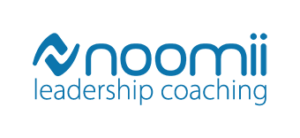



Trackbacks & Pingbacks
[…] and team performance within Vancouver-based companies. For those interested in exploring leadership coaching opportunities in Vancouver, Noomii offers a proven path to unlock potential and drive organizational […]
[…] with coaching cultures report stronger psychological safety at work and higher engagement. Explore Leadership Coaching Opportunities to learn how coaching can transform your workplace. For proven accountability frameworks, visit […]
[…] leadership pipeline and identify gaps in competencies. Organizations often benefit from exploring leadership coaching opportunities to ensure programs are tailored to both current and future […]
[…] exploring different leadership coaching opportunities to find the best fit for your needs. Assess package options for flexibility, scalability, and […]
[…] understanding of available coaching models and how they compare to legacy approaches, explore these leadership coaching opportunities explained. This resource outlines the key differences and helps leaders determine the best fit for their […]
Leave a Reply
Want to join the discussion?Feel free to contribute!